

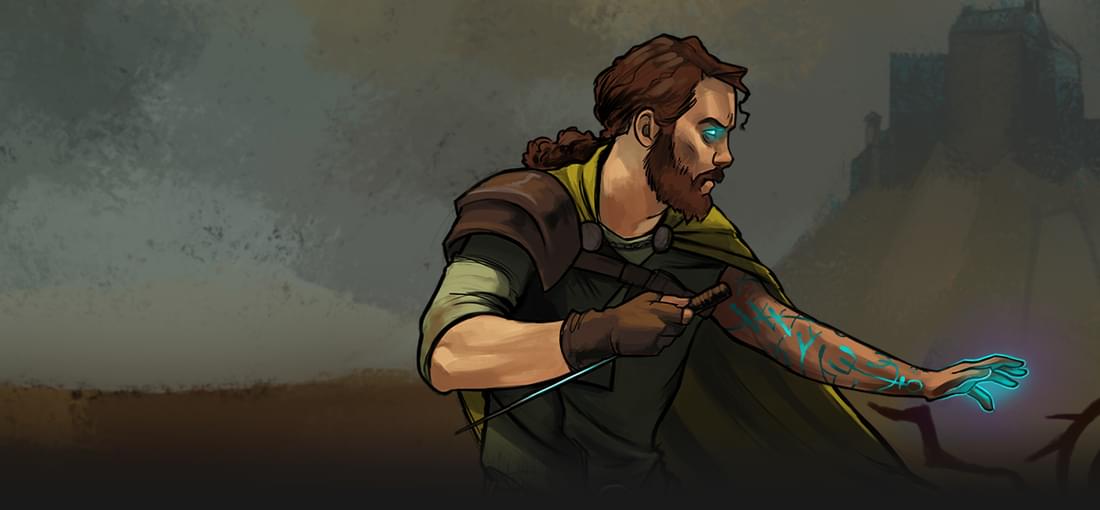
The gameplay of Ancient Enemy is based on the mechanics of the popular solitaire game. There are stacks of covered cards on a table, with one uncovered card on top. A player also has an uncovered card - with values from zero to nine - and can take a card from the table with a value greater or less than his own. On the grounds of the colour of the card, he charges his physical attack, magical attack or defence. To keep things interesting, there are also special cards on the table - for example, keys to unlock other piles of cards - and a player can use abilities or expendable items. Locations on the map are of two types - combat and puzzles. The latter, often optional, allow you to collect items or magical power, which is currency for learning new spells at the end of each chapter. As each enemy has its own specific resistances and there is only a limited number of spells, abilities and items to use during a given battle, it is important to choose them properly before each fight. This is a small strategic feature of the game. Being relatively simple - compared to other card games with bulky manuals and rules - the game is highly addictive and satisfying, so I can recommend it to any card game fan without hesitation. There are, however, two drawbacks. The first is the story. The protagonist is a mage who wakes up - as the last man? - after years of lethargy in a world consumed by the evil magic that once made him weak, he embarks on a crusade to regain his strength and fight his enemy once more. Despite the fact that there are a lot of monologues by the magician to read, they are not very convincing and the story seems to be a simple excuse for the gameplay. The other con concerns the gameplay. Enemies only have immunities and no weaknesses. For example, a charcoal golem has resistance to fire-type damage. It would be more logical to make it immune to other types and take double damage from fire.
Did you know that after the instant success of the original Broken Sword, the studio wanted to develop the sequel, but the publisher had a condition - it had to be finished by the end of the year? Developing a game in such a short time is extremely difficult, but Revolution Software managed to do it. However, this is the reason why the game is so short and uses the original Broken Sword's graphic engine. The remastered version of Smokin Mirror is exactly like the director's cut of the first Broken Sword. It features some improvements to the graphics and interface of the original game. Otherwise, it is the same classic point'n'click: great story, locations, puzzles, dialogue and characters. As Smoking Mirror does not continue the Templar theme of the first Broken Sword and instead explores the Mayan mythology, the story - apart from some first locations in Paris and Marseille - takes place mainly in Central America. A player would meet some old friends, such as Andre Lobineu or Pealr and Duane Hendersons, and make some new ones. If you haven't played this classic point-and-click game yet, I'd highly recommend picking up the remastered version to familiarise yourself with it!
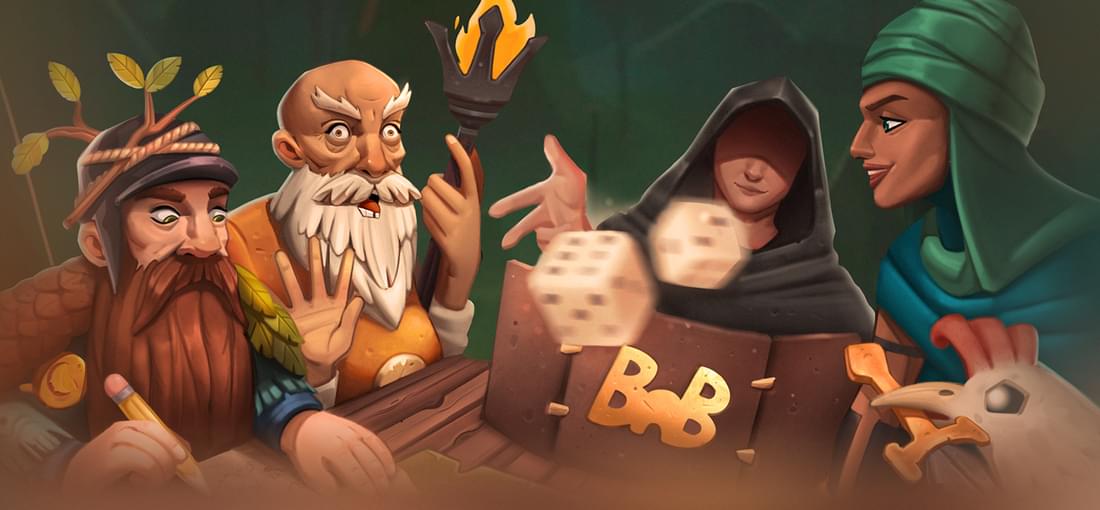
Simulators are quite a big genre these days. Some companies even specialise in developing or publishing them. ENVy Softworks had an interesting idea to make a simulator of a classic pen-and-paper RPG. And so it is. B'n'B simulates discussing strategy with your party, listening to another player argue with a GM and rolling the dice from time to time. Sounds silly enough? Well, it should, because the game does not take itself too seriously. It is clearly a parody, even the title is a reference to the D'n'D. There are other references in the game, like Bugbeer, a joke on owlbears (which have become viral fandom memes). The dialogues in the game are actually quite funny, I really laughed a couple of times. B'n'B reminds me a bit of the recent film Honour Among Thieves. However, the film was brilliant, and the game is much worse. This simulator is really realistic - which means it has all the pros and cons of a pen-and-paper RPG. Do you know the situation where your character is out of action for some reason and you just watch the rest of your party play without you, and it is so uninteresting that you are so bored you literally fall asleep? The whole of B'n'B is like that. Most of the time it is just like a visual novel where you are reading dialogues between other members of your party or between them and the GM. Don't get me wrong. I love games with rich lore and compelling dialogue, but for something to be considered a game, the player has to interact with the environment rather than be a passive reader. And when it comes to choosing an action or an answer, there is always a time limit. I think that absolutely spoils the fun. There are types of games that should be fast-paced, like shooters or action games or even RTSs, and others that should be relaxing, like point-and-clicks or turn-based strategies. B'n'B could be such a relaxing experience, and it missed its chance.
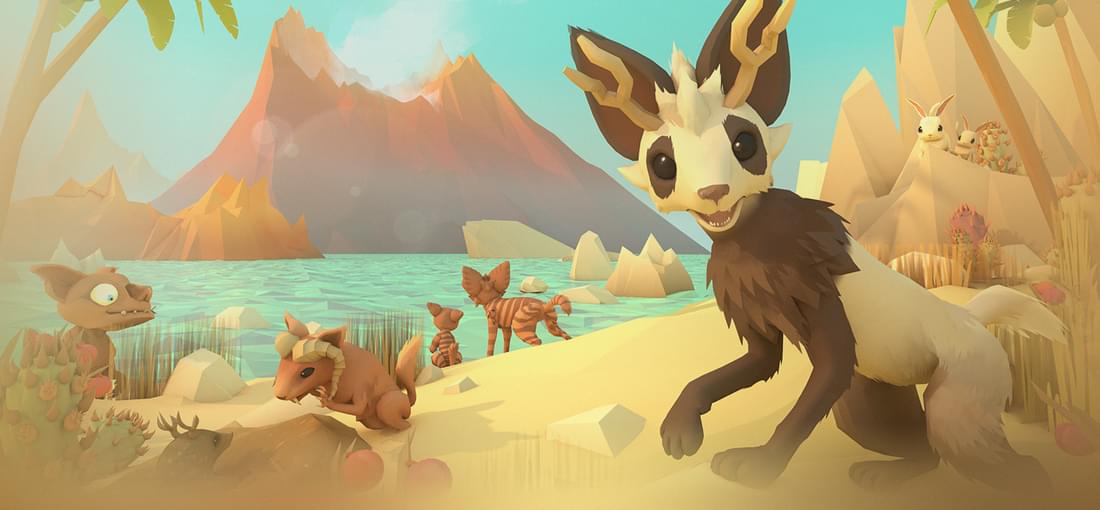
Niche has a very original approach to the genre of survival games. There is a whole pack of animals instead of a single character to keep alive. An entire species, in fact. The gameplay is so long term that the player has to keep a species alive for generations on end. Therefore, it is necessary to manipulate natural selection to get desirable traits in the next generation. Some animals would starve, some would get killed and eaten, some would age. But the survival and evolution of the species would be the result. It is even a good idea to mate certain animals in this way in order to get different branches of evolution: Some specific animals will specialise in feeding on land and others in feeding in water. Once again, this is a very original idea for a game, one that is fun and also somewhat educational. And the graphics are absolutely cute. A nice family game for children. And for some extension, this game resembles another one of the genre, like The Long Dark, or of the other genres, like Sid Meier's Civilization, Heroes of Might and Magic, or even The Sims. Free play is better than campaign for these specific types of games. In the niche, there is a campaign with a simple story: A cub named Adam is kidnapped by a predator, so the pack sets out on a mission to rescue him. To do this, the player has to complete a number of levels. Each level is more difficult than the previous one, and is set in a different environment. The problem is that passing a level means getting from point A to point B. Simple, right? Well, not in a mechanic that rewards settling down in a safe place with plenty to eat instead of living a nomadic life. And the story gets ridiculous when entire generations travel, die of old age and are replaced by another to save a cub that remains forever young. Free play is still recommended for fans of survival games. Perhaps this is a good game for children to learn about survival. Still, The Long Dark has better story and campaign.
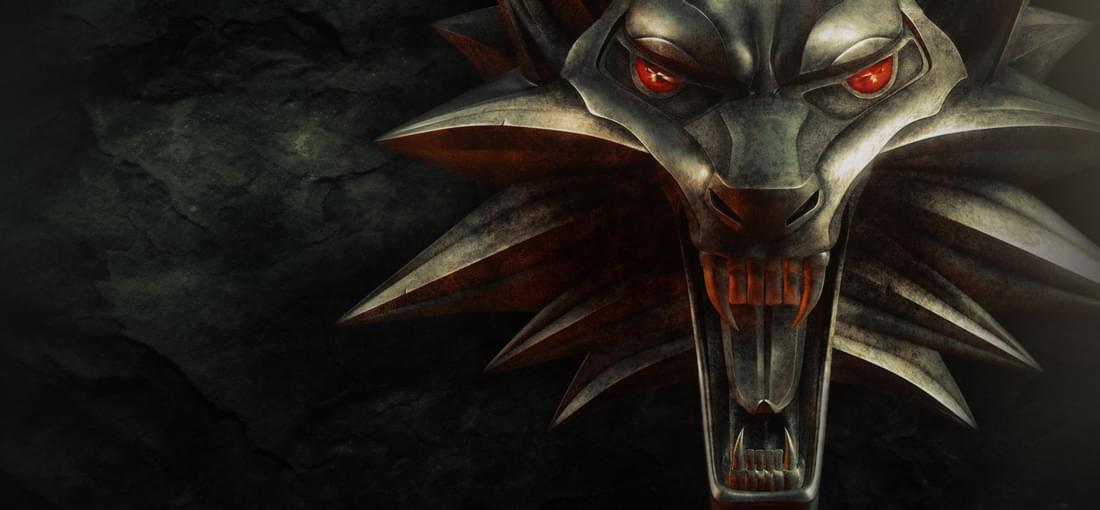
Never before have the moral dilemmas in a computer game been so difficult and so deep. And so meaningful. This was actually the first video game where the player had a real impact on the world. A very realistic world, as far as fantasy worlds go. I mean: This is not high fantasy. Compared to many other RPGs, this one is quite dirty and has got a lot of grey shades. This is just an ideal adaptation of Andrzej Sapkowski's novels, whose style is very cynical. The combat system has also been well thought out as well. The statistics of the character rather than the skills of the player are what counts on the battlefield. In this system, you just click at the right time - like in a rhythm game - and Geralt does the rest spectacularly. It is a controversial opinion, but the first Wither and the Thronebreaker are my favourites of the whole franchise.
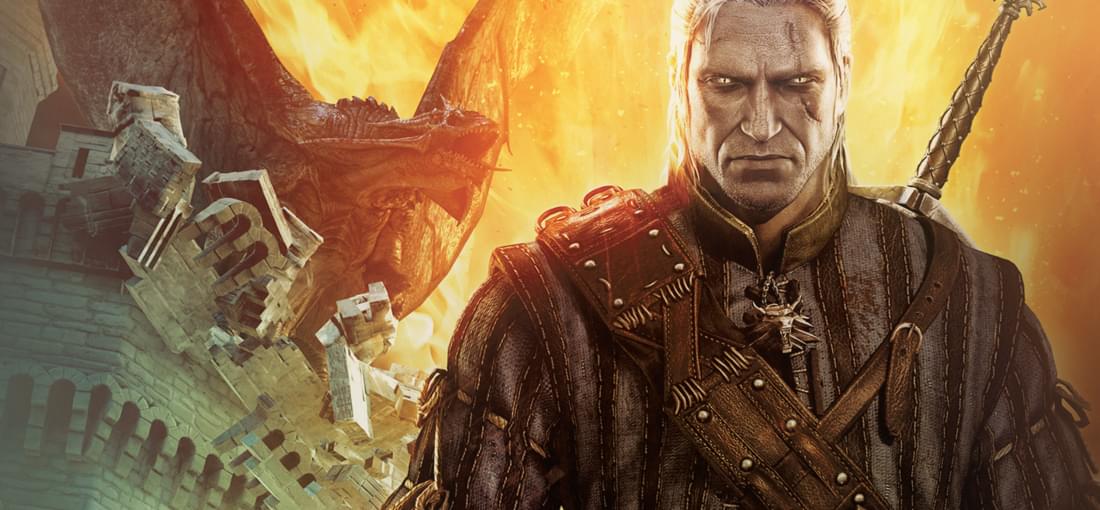
I have the feeling that The Witcher 2 was just a sort of transition between The Witcher 1 and The Wild Hunt. Just like an unfinished project to have a look at what The Witcher 3 might be in the future. The game does away with most of the gameplay of the original The Witcher. It changes the perfect RPG-like combat system of The Witcher 1 into a kind of ragged action system. One consequence is an exaggerated and unbalanced difficulty. It is also the shortest of the entire franchise. However, it is not the gameplay that is the watermark of CD Project Red. It is the story, the atmosphere and the dialogue. And that makes this a fun title to play.
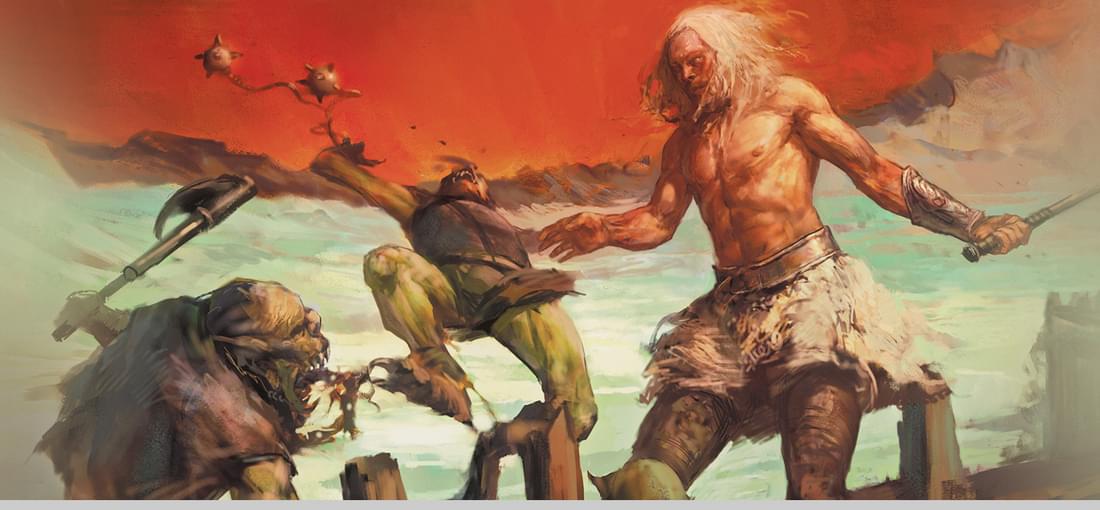
Back then, genres were easier to distinguish. A game was what it was meant to be, without the need for genre cross-pollination just for the sake of mass appeal. These days, Dark Souls, The Witcher 3, Cyberpunk or the modern Assassin's Creeds all pretend to be role-playing games. Back in the good old days, a player had to build up a party, with each member having their own strengths and weaknesses. Success or failure on the battlefield was not a matter of the agility of the player. There was no gunpoint like in shooters. The statistics of the party and the strategy of the player were the only things that mattered. Nice that thanks to GOG you can return to the Forgotten Realms and relive a good old game.
The original Mount & Blade was a masterpiece. A mix of role-playing, action and strategy, it was proof positive that a AAA budget was not necessary to create a world class game, as long as the overall idea was right. In theory, this idea could be applied to any settlement and be the source of an infinite number of great DLCs. The era of the Golden Liberty, the Dominium Mari Baltici and the problems with the Cossacks really did look attractive. Well, theoretically. It is impossible to completely change the settlement without changing the gameplay. It didn't work. In the original M&B, if a player is killed on the battlefield, the battle automatically fails, which means a lot of losses. The whole battle can still be won, but that particular skirmish becomes a failure. In theory, this is not a problem, as sudden deaths are rather rare - a random arrow is not strong enough to pierce a knight's armour. This situation will change when a gunpowder weapon appears on the battlefield. In Fire & Sword, it is literally possible to be shot by an enemy sniper at the start of every battle. This means getting defeated in almost every skirmish and losing most of your army. The fun just disappears. The original M&B did not have a plot of any particular kind. For many, this was a drawback, but I found it somehow appealing. I like to think that M&B resembles Sid Meier's Civilization. If there is no main quest, then it becomes a game of the imagination, just as it is in a board game. A player has to find the meaning of his or her actions on their own. In the case of M&B, the player takes on the role of an average knight who is struggling to gain honour and develop his domain. Very historically accurate, actually. This, in my opinion, is the atmosphere of M&B. Fire&Sword, however, has a plot and a main quest. The references to the novels of Henryk Sienkiewicz are really funny... but I just couldn't enjoy them because of the botched gameplay.
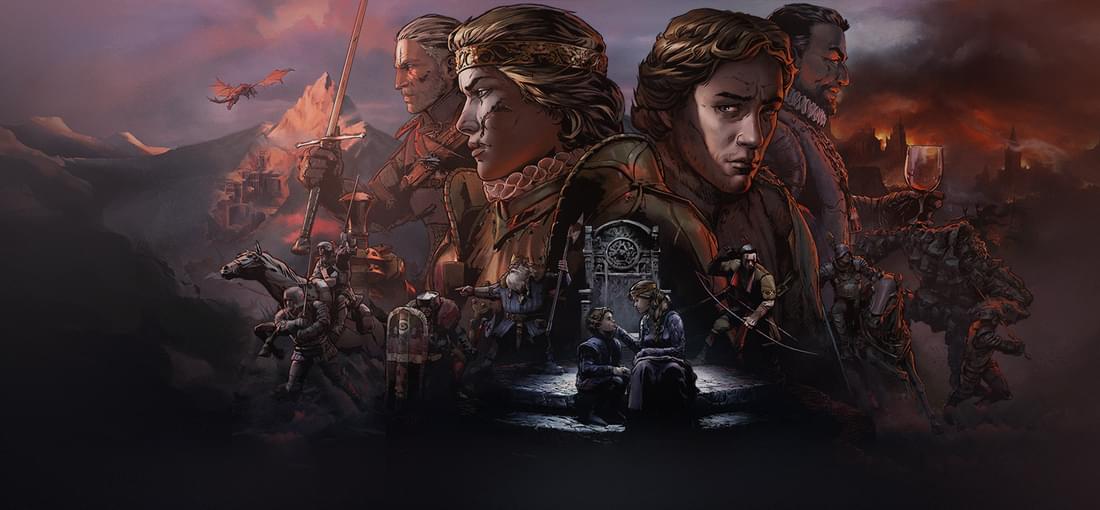
At the outset of this review, its title will be controversial. Maybe this is even a baitclick somewhere. However, this is my honest opinion. Thronebreaker is a mixture of a number of different genres. Like in the Heroes of Might and Magic series, the player explores the map and collects resources as Meva, the queen of Rivia and Lyria. A player can spend resources to build their military camp, so there is a bit of strategy involved. There is also a small amount of role-playing. Not leveling up and grinding your stats, but developing the relationships you build with your companions. And there really is an abundance of interesting characters with rich back stories. However, Thronebreaker is first and foremost a game of cards. The rules of the game are quite different from those of The Witcher 3. They were developed and implemented in the online game Gwent. On a map, a player will find the obligatory duels that will push the story forward, additional duels that will allow you to meet new characters or discover some secrets, and puzzles that have special rules. Just as the game in general is not too difficult by genre standards, the special puzzles are really tricky. Having said that, what really stands out in Thronebreaker is the plot. I am not afraid to say: It is the best written story of the CD Project Red. Far better than The Witcher 3, better than Cyberpunk, even better than The Witcher 1. Just like in The Witcher 1, player's choices are hard and meaningful - has a real influence on the world. And the story is long, which makes the game longer than others in the genre. The campaign takes over 30 hours to complete all the optional challenges and find all the secrets. As the campaign has been mentioened - there is no multi. As a matter of fact, there is free online Gwent game. Purchaising the Thronebreaker, you will be granted with some cards and avatars in the Gwent. 5/5. A must-have for all card fans.